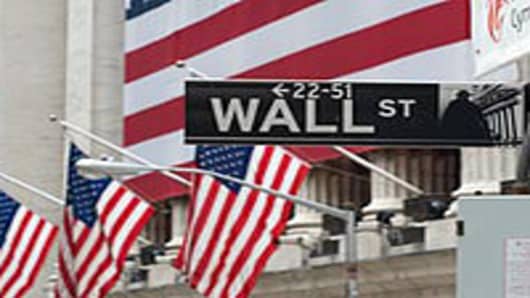"What the law did was force the banks to rethink their business lines, their pricing strategies, their methodology for maintaining their balance sheet," banking analyst Dick Bove of Rochdale Securities said in an interview. "When they rethink it all, they will be able to offset all of the costs of this bill."
The banks' course of action likely will break down into four strategies:
1. Outfox the foxes
A harsh critic of the law, Bove is among the analysts who nevertheless believe banks will thrive. One big reason is because he thinks industry executives will show that they're smarter than the legislators who crafted financial reform, also known as FinReg.
"If you had anyone who knew anything about the financial industry writing this law, that's one thing," said Bove, who has called the law one of the worst in US history. "But if you have a bunch of hysterics who were looking for political gain, you get something that was an abortion. All it did was increase the cost of banking in the United States relative to the cost of banking in other countries."
One of the loopholes will be challenging the government to decide what is "proprietary trading." Normally considered that trading which institutions do for their own benefit rather than their customers, observers have speculated the government will have a tough time enforcing an exact definition.
The same could go for the much-touted Volcker Rule—named after White House economic adviser and former Federal Reserve Chairman Paul Volcker—which restricts to 3 percent of Tier 1 capital the amount banks can hedge or put into private equity.
But Bove said banks like Goldman Sachs can sell private equity funds to a third party and then establish a management contract in which Goldman would run those funds and take a percentage of the increase in value "which presumably would be equal to the profit you were getting for holding the funds in the first place."
"Although banks will be limited in how much they can invest in the funds along side with investors, managing the fund is still expected to garner meaningful management and incentive income," analysts at Keefe, Bruyette & Woods wrote of the 3 percent restriction.
2. Going Overseas
As Bove stated, Congress enacted FinReg unilaterally—foreign banks don't have to abide by the US rules, and US banks doing business overseas also can skirt FinReg in certain instances.
"The US is the world's largest economy and has the largest and deepest capital markets. There's no way for any big bank to avoid the US," said Doug Landy, banking partner at Allen and Overy in New York. "But I think people are re-looking at what business they do here and what business they do elsewhere."
While banks will have to be cautious not to cross regulatory restrictions, Bove said there are plenty of ways for financial companies to take their business outside the US.
Under the new rules, "You run the risk of the Federal Reserve saying, 'You're interconnected, we're going to regulate you,'" he said. "Or you can do it through a consolidated subsidiary in Switzerland. Nobody sees it, so there's no regulation. So why should you do it here?"



